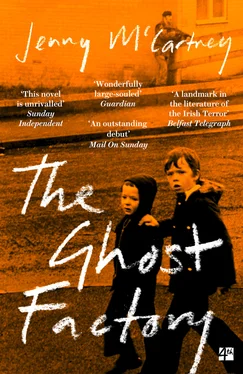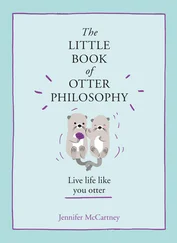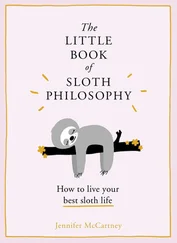
Copyright
For my parents
One need not be a Chamber—to be Haunted—
One need not be a House—
The Brain has Corridors—surpassing
Material Place—
Emily Dickinson
Cover
Title Page
Copyright
Dedication
Epigraph
Part One
1
2
3
4
5
6
7
8
9
10
11
12
Part Two
13
14
15
16
17
18
19
20
21
22
23
Part Three
24
25
26
27
Acknowledgements
About the Author
About the Publisher
Part One
Belfast, 1995
I grew up in a rainy city, walled in by dark hills, where people were divided by size. We came in one of two sizes: big or wee, with no real words for those who fitted somewhere in between.
Mostly the reason for a fella’s nickname – Big Paul, say, or Wee Sammy – was staring you in the face, or the chest. But sometimes strangers were puzzled when they heard some great lump, with arms on him like two concrete bollards, being spoken of as Wee Jimmy.
The explanation was simple: he was obviously the son of a Big Jimmy, and had contracted the term ‘wee’ early, from the pressing need to distinguish the child from the father. Although he had long burst out of his wee name it clung to him as he surged through life, a stubborn barnacle on the side of the Titanic .
I was once Wee Jacky. But when Big Jacky, my father, collapsed on the street one day, his hand flapping towards the astonishing pain in his heart, the need for my title ebbed away on the pavement. I became just Jacky, because I was now the only Jacky.
Then there was my friend Titch. His name belonged to the third and rarest category: he was so enormous, but so unthreatening, that his bulk could safely be referred to in ironic terms. So he was dubbed Titch, a miniature word synonymous with a small perspective on life.
The clash between Titch’s name and his appearance made strangers laugh. From the moment of introduction he was a walking contradiction, an ambulatory joke. But he turned out to be no joke for me. That big soft eejit, and what he stumbled into, was the trigger for the whole nasty business that swallowed me up like a wet bog.
I grew up in Belfast: my beloved city, baptised in tea and drizzle, sprinkled with vinegar-sodden chips and cigarette butts. You turned off the Lisburn Road, with its smattering of boutiques and cosy coffee shops, and just kept walking over the metal footbridge until at last you made it to our battered grid of streets with its two-up, two-down terraced houses crammed together in different shades of brick, paint or pebbledash. Every so often there was a derelict one with boarded-up windows, dismal as an eyeless face. And there I was, walking down Lucan Street towards the house where Titch lived with his mother.
It was the best time of the day for me: the fading hour when a long summer evening tips into the night, and mothers come to their doors to reel their grumbling children back in from patchy football games on scrubby grass. One of them was sitting on the brick wall near the waste ground as I walked past, scuffing his heels on the graffiti. He yelled after me in his reedy voice: ‘Mister, lend us a quid would you?’ I would have walked on, but there was something about the pally delicacy of his lend that made me laugh, the wily pretence that I had a hope in hell of ever getting it back.
I turned round to look at him. He was slouched up there, about eleven years old, puffing on a cigarette and screwing up his eyes like a bad imitation of James Dean. He wouldn’t have known who James Dean was, of course: he thought he had made up the squint himself. He had a ratty skinhead and one of those childish old man’s faces, the fine skin stretched over the sharp bones a bit too tightly for someone so young.
‘What would you do with a quid,’ I asked him. ‘Go and buy yourself some more fags?’
‘Sure a quid wouldn’t buy me a whole packet anyway,’ he answered, quick as a ferret.
‘At the corner shop, they sell them as singles,’ I said. A second’s pause. The wee dervish knew I had him on the hop.
‘I was gonna get a bag of chips,’ he countered, sliding his eyes away in expectation of defeat. I handed him the coin: ‘Don’t be spending it all in the one shop.’
He grinned, a sudden flash of pure joy, and faked falling off the wall in amazement as payment. I watched him saunter down the road to the chippy, trying to flick his fag-end into the gutter like a practised smoker. In about a month’s time, he’d have it just right.
The moment sticks in my mind: his dwindling, cocky figure in the grey light. It was the last time that things in my life seemed clean, the smiling photograph snapped minutes before the car crashes. Seconds after I walked into Titch’s house I could smell the first cracklings of trouble, like something softly burning in another room.
The years had dealt Titch’s mother a few thumping blows, and you could see their impact in the depressed sag of her shoulders. She was like a sofa that too many people had sat on, and the heaviest arse was Titch’s dad, a salesman and raconteur who drank up the housekeeping money, and then the rent money, and then buggered off to leave her precarious and alone with Titch, her hulking, simple-natured son with a penchant for stealing things from shops. Titch’s dad had since shacked up with a hairdresser from Omagh, by whom he had two more children in quick succession. He sent Titch occasional birthday cards with a fiver or tenner tucked inside, and the scrawled words ‘From Your Dad’ beneath the glaringly false inscription To The World’s Greatest Son.
When Titch was younger he hoarded all his dad’s cards from year to year and used to pore over them sentimentally. Then one year the dad’s card arrived ten days late, bearing the gold-piped legend Happy Birthday Son, and in his furious disappointment Titch threw the entire carefully saved stack on the fire. Now he filleted the money wearing a bored, sulky expression, plump fingers rustling speedily inside the envelope, and threw the card into the bin without even reading the message. At least, that’s what I had seen him do, but it might have been for effect. I bet he fished it back out and had a proper look at it later.
There was a kind of sweetness running through Titch’s mum: she wasn’t a whinger. She never hinted that God had dealt her a bad hand. She had dealt it to herself, she said, the day she first saw Titch’s dad relating a joke in a smoke-filled city centre bar, with his gleeful face shining as he approached the punchline, and the men crowding round him already in stitches at the way he was telling it. She should have seen he was a bad egg from the word go, she said, but then again that might have been why she had liked him. Maybe the whiff of sulphur had attracted her.
I knocked twice: the front door opened, more slowly than usual.
‘Ah hello, Jacky,’ she said. The day’s worries had seeped into her voice.
‘What’s up?’ I asked, hanging my jacket in the narrow hall. She ushered me into the front room and nodded towards Titch’s bedroom.
‘He got into bother at McGee’s shop. The old man caught him taking a packet of biscuits he hadn’t paid for and there was a bit of a row, I think.’
Читать дальше













